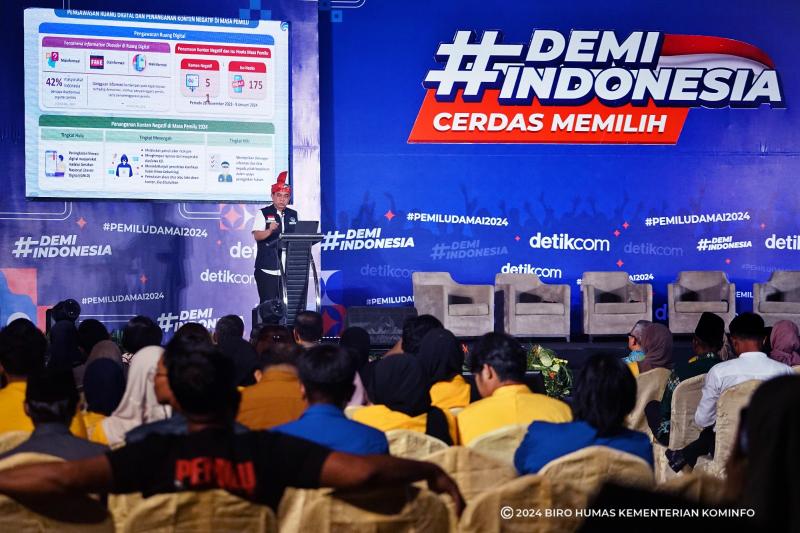Could You Trust Your News Feed? Indonesia’s Presidential Elections Embrace Fact-Checking, but at What Cost?

2024 is the year of democracy for Indonesia. The democratic election required actual and factual information. However, the hoax is a crucial threat to the Indonesian election. Reflecting on the previous election in 2019, hoaxes could cause unrest and confusion in the community, affecting the election results. In that year, the Ministry of Communications and Information of Indonesia (Kominfo) stated that the hoaxes circulating reached 3356 from August 2028 to 30 September 2019. It suggests that the hoax threat on the election is serious for the democratic election in Indonesia.
Regarding the face of the 2024 election, the Kominfo counted 160 election hoaxes that spread through 2623 on social media from 17 July 2023 to 6 January 2024. About 1236 pieces of content have been taken down; the rest are still in the process. So, in terms of addressing that issue, the Kominfo held press release no. 11/HM/KOMINFO/01/2024 about the Anti-Hoax Task Force by the central of the Indonesian Journalists Association (Persatuan Wartawan Indonesia – PWI), on Tuesday, 9 January 2024. Budi Arie Setiadi, as the Kominfo, encourages the increase of digital literacy through the national digital literacy movement in the upstream. Following this, emphasize the validation of the facts and information process and hoax content access cut-off. Lastly, the downstream level is support for law enforcement. This mechanism of collaboration is expected to increase the effectiveness in identifying and handling election hoaxes.
This initiative is likely to mainstream fact-checking in the media. This step can be one of the solutions to overcome the threat of election hoaxes by an effort by the media to check the truth of information circulating in the community. This strategy takes the role of helping society to differentiate the facts and hoax information about the election. This is vital to ensure that society is able to make the right decision on election day. Some media concerned with fact-checking are Kompas, Tempo, Katadata, and Narasi. Citizens can access those media to check for information.
Besides that, the decrease in the number of election hoaxes is likely due to several factors, including improving society’s awareness of election hoaxes and increased digital literacy. To some extent, I underscore the role of women, especially mothers, to decrease the election hoaxes in family groups to minimize the spread of hoaxes from the family level. Echoing the media, fact-checking for women at the grassroots level should be highlighted by the media, particularly from the feminist media. This can be influenced by encouraging women to be exposed and educated about media literacy skills, spreading the information about the importance of media fact-checking in their families or communities, and supporting the effort to develop independent and transparent media fact-checking. Hence, empowering women through community initiative and media literacy are vital to support media fact-checking at the grassroots level, ensuring a safer election.
Moreover, strengthening the role of media in fact-checking during election periods also requires support from the authorities. The capability and quality of fact-checking should also be improved. The media must implement the verification standard and employ appropriate fact-checking methods. Next, increasing individual awareness of hoaxes also plays a significant role in eradicating hoaxes. People need to improve their digital literacy and be critical of information circulating on social media. Hence, those steps will likely be more effective in overcoming the threat of election hoxes and safeguarding electoral democracy in Indonesia.
Nonetheless, this scheme of strategy can also be utilized as the government’s effort to control the information that is being spread and limit freedom of speech. Media fact-checking might be used for people who spread information authorities consider hoaxes or propaganda or discredit critics’ arguments.
The potential utilization of media fact-checking needs to be watched out for. The public needs to be critical of the information conveyed by the government and media. The public must also support efforts to ensure that media fact-checking is conducted independently and transparently for peace and a prosperous election.
Source of image : https://www.kominfo.go.id/content/detail/54118/siaran-pers-no-25hmkominfo012024-tentang-tangkal-hoaks-soal-pemilu-2024-kominfo-gencarkan-tiga-inisiatif/0/siaran_pers
